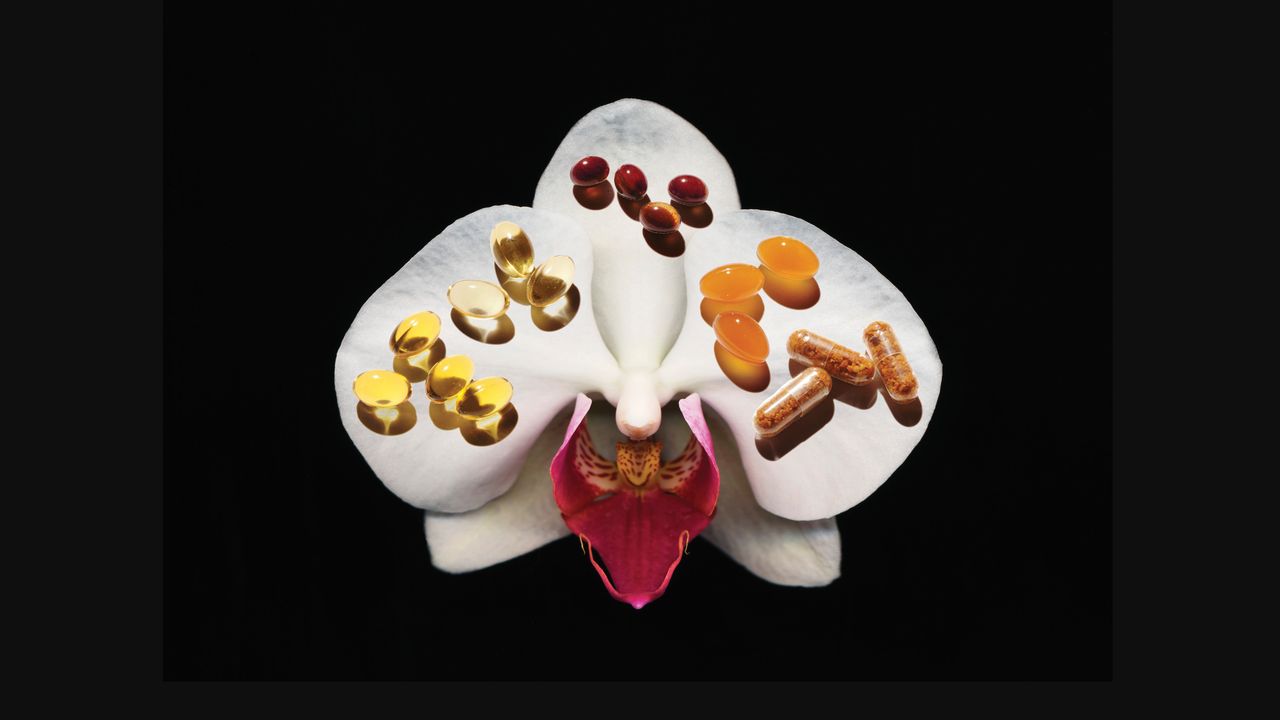OB-GYNs are fighting for our vaginal health over on TikTok. In one video, Staci Tanouye, MD, scans a crowded feminine hygiene aisle saying “no” to every single option. Another clip shows Karen Tang, MD reacting to Kourtney Kardashian’s brand Lemme’s vaginal health gummies with “You…don’t need these. Bye!” Ali Rod, MD, (who goes by The Latina Doc) politely asks women—in a video that has been viewed over five million times—to not put yogurt, garlic, yoni pearls, herbs and spices, twigs, and leaves, or apple cider vinegar in their vaginas. “Just leave her alone,” Dr. Rod says.
These board-certified physicians, who presumably have patients to see, are spending their time begging us not to mess with our vaginas because of all the other content creators—without a medical degree—who preach passionately about said medical topic: “Get ready with me while I tell you all the things that I do to smell and taste good down there,” says one perky influencer on TikTok, tapping bronzer across her cheekbones as she tells hundreds of thousands of followers about the virtues of boric acid suppositories. According to her, they should be inserted every time after you “hang out” with someone and on the last day of your period to get a “refresh.”
Women have been fussing over their vaginal hygiene for decades because brands have been marketing the message that we should be for just as long. This particular corner of capitalism dates back to the 1900s and often relied on far more insidious messaging than the easy breezy ‘90s-era advertisements I recall of women smiling in tree swings while talking about summer breezes. In the 1930s, Lysol (yes, that Lysol) was marketed as both a cleanser and contraceptive (women would eventually die from using it as a douche) with print advertisements that warned women they could lose their husbands if they were careless about their feminine hygiene. During the 1960s, Pristeen feminine deodorant could give even a despondent young woman standing alone in a field the “peace of mind of being an attractive, nice-to-be-with girl.” In 2010, Summer’s Eve ran an advertorial in Women’s Day magazine stating that the first step for a woman to build up confidence before asking for a raise at work was… to douche.
Fast forward to today and the market for “feminine hygiene” products is set to grow from $9 billion in 2024 to nearly $16 billion by 2034—and this number only accounts for washes, wipes, creams, and sprays. It doesn’t include the new frontier in this space: supplements. See Kourtney Kardashian, who, besides gummies for your vagina is also hawking ones for hair growth and a purported Ozempic dupe, because every bandwagon must be leaped upon. (I digress.)
Most doctors agree that oral supplements claiming to have a positive effect on your vaginal negatives (whatever you think they might be) are generally snake oil. There’s little to no data to back up their claims. More concerning to some, though, are the over-the-counter “vaginal health” products sold as suppositories. Most promise “odor support,” and say they’ll improve this organ’s “pH balance.” The ones most frequently name-checked on TikTok—or in group chats or over brunch tables—are produced by a growing list of start-up wellness brands with bright packaging and cutesy euphemisms. And many are boric acid-based. So let’s start there.
Why would you put a boric acid capsule in your vagina?
It was on the recommendation of a friend that Allison*, 40, first tried boric acid suppositories. She had a new boyfriend, and was having all the intercourse that comes with one. The friend told her that using a boric acid suppository prophylactically could prevent yeast infections, something she was historically prone to, and recommended her personal favorite. “I inserted one and by the next day, I knew something was wrong,” she shares. “My vagina felt like it was on fire. Every time I had to pee, it was like jumping into the Dead Sea with cuts all over your legs. Afterwards, I would have to immediately rinse my vagina in the shower and then get in an epsom salt bath for some relief. I didn’t leave the house for a week.” After a pelvic exam, Allison’s ob-gyn said she had no infection or anything else that could be treated—there was nothing she could do but wait for the symptoms to subside. Allison turned to Reddit where she found other women who’d had a similar experience. They suggested a manuka honey ointment that she found soothing. “But it was still three weeks before I was totally back to normal,” she says.
Boric acid, or hydrogen borate, is a water-soluble chemical compound that has antiseptic and antimicrobial properties and is also a common household insecticide. The premise for using boric acid in the vagina is that it could potentially shift the organ back to its ideal acidic state when, during an infection, the spectrum has moved to a more basic or alkaline environment, allowing bacteria to overgrow, says Kameelah Phillips, MD, a New York-based OB-GYN and founder of Calla Women’s Health. Walk the feminine care aisle of any drugstore and you’ll find plenty of boric acid options. The new Monistat Boric Acid Odor Control Kit contains 10 600mg boric acid suppositories (plus 10 individually wrapped wipes) “to help control vaginal odor and balance pH.” You’ll find similar products from Azo, Nutrablast, and Honey Pot (this last offering contains not only boric acid but “herbs”). One of the buzzier offerings is a suppository called “The Killer,” sold by Love.Wellness, a brand founded by lifestyle influencer Lo Bosworth of MTV’s Laguna Beach and The Hills.

